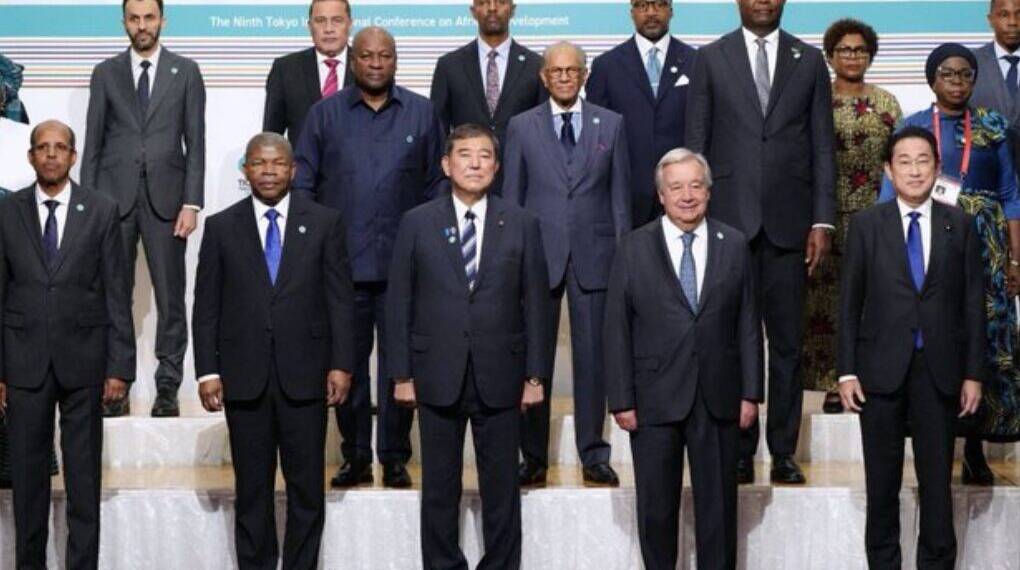Japan has unveiled a bold initiative at the ninth Tokyo International Conference on African Development (TICAD 9), introducing a special visa program to settle African migrants in Japan as part of its broader strategy to strengthen ties with the continent while tackling pressing domestic challenges.
The program designates four Japanese cities as “hometowns” for migrants from Nigeria, Tanzania, Ghana, and Mozambique. Under the scheme, Nigerians will settle in Kisarazu, Tanzanians in Nagai, Ghanaians in Sanjo, and Mozambicans in Imabari.
Officials say the initiative is designed to address Japan’s acute labor shortages and revitalize depopulating rural areas, which have been grappling with declining populations and aging demographics. For Japan, this marks a significant step toward reshaping its traditionally strict immigration policies, while offering African workers new opportunities in sectors such as manufacturing, agriculture, and maritime industries.
A Strategic Shift in Japan’s Africa Policy
The announcement coincided with Prime Minister Shigeru Ishiba’s opening remarks at TICAD 9, a three-day summit attended by nearly 50 African leaders, ministers, and international officials, including U.N. Secretary-General Antonio Guterres.
In his keynote, Ishiba pledged to deepen economic and strategic ties with Africa, stressing Tokyo’s role as a “reliable partner” in a region increasingly shaped by global competition.
At the center of Japan’s vision is the “Indian Ocean–Africa Economic Zone Initiative,” a new framework designed to link government agencies, industries, and experts in expanding trade and investment. The plan seeks to channel Japanese business activity from India and the Middle East into African markets, boosting connectivity, free trade, and sustainable development.
“Japan believes in Africa’s future,” Ishiba declared. He reaffirmed Tokyo’s backing of the African Continental Free Trade Area (AfCFTA), calling it a cornerstone for strengthening regional competitiveness.
Balancing Global Powers in Africa
The timing of TICAD 9 underscores shifting geopolitical dynamics. With U.S. engagement in Africa diminishing under President Donald Trump’s tariff wars and aid program cuts, and China’s influence continuing to expand through large-scale infrastructure investments and loans, Japan is stepping in to position itself as an alternative partner.
Organizers emphasized that Japan’s approach focuses not on resource extraction or debt-driven projects but on long-term connectivity, trade facilitation, and local development.
Revitalizing Japan While Empowering Africa
For Japan, the dual strategy is clear: bolster African growth while simultaneously revitalizing struggling local economies back home. Towns like Kisarazu, Nagai, Sanjo, and Imabari have been grappling with population decline for years. African migrants settling there will not only support local industries but also bring cultural diversity and vitality to shrinking communities.
The program could mark a turning point in Japan’s immigration stance, long characterized by caution and restrictive policies. By linking migration to economic cooperation, Japan signals its readiness to embrace a new role in the global south while safeguarding its own socio-economic stability.
As TICAD 9 continues over the next three days, discussions are expected to expand on trade frameworks, sustainable development, and climate resilience. Analysts say the migration program, combined with the Indo-Pacific–Africa initiative, highlights Japan’s ambition to be more than just an economic partner — aiming instead to be a strategic and human-centered ally in Africa’s growth story.
If successful, this new chapter in Japan–Africa relations could not only redefine Tokyo’s global standing but also transform both African economies and Japan’s rural heartlands.








